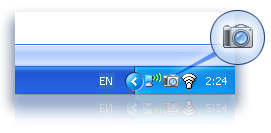Jessica and I created a wee advert for the College of Education at the University of South Alabama. We asked many students what they would like to see and improve about their educational experience. Some wished that they had more than the two classes offered online at the college. Lots of people are annoyed at the lack of online choice for undergraduates (currently two choices.) Most wished to eliminate the cost of textbooks and supplies, that they felt were not needed. Everyone agreed that being familiar with smart boards would be a huge advantage entering the job market as a new teacher. If that's what the student demands, then we wondered how hard it would be to make it happen.
So, we began researching and found that the easiest way to do this would be to have a very inexpensive laptop for every student that did not already have one. When students have a laptop they would be able to purchase smart board (or supplied the software) and use the application whenever they wanted. The question was "how could we afford to do this?"
The answer seemed delightfully simple and beneficial to all. Sites like Zinio work with publishers and faculty to convert and manage textbooks into digital print.
Meaning that there is no limit to how little or how many copies the publisher needs to make. Digital print also saves paper, machines, ink, freight, and bookstore fees. (The publicity the University would receive from going green in this way would bring major attention to our College of Education) This allows publishers to make the same profit with textbooks being less then half the price of hardback copies.
Further more, publishers suggest that faculty can opt to purchase a chapter at a time to suit the class, and tailor the entire semester readings, rather than the entire book. At first, I thought this was crazy, but then I remembered ITunes and how I frequently go on and purchase a song from an album, but rarely have I ever thought about an entire CD. The publishers obviously know what they are doing.
Amazingly, this would allow faculty to slowly transition over to having entire text written by faculty rather than the publishers; generating a ton of money for the university while making college expenses less of a burden on students. I would be willing to pay a little extra tuition if I did not need to buy textbooks. I'm not a betting man, but a small incentive for faculty would make this happen quicker than you would think possible.
As a student the average expense for four years of college textbooks is currently $5,800 and rising at 6% per year. The university bookstore only makes a 3.7% average net profit on textbooks. That is only $50 per year per student after expenses. Why not change the process? According to the government agency that controls financial assistance in education, this is the only viable long term solution to making universities and schools affordable. Check out the facts by clicking
HERE. Imagine if all you had to buy was a $200 laptop and a $150 smart board software program instead of $5,800 worth of books.
Students would be better prepared entering the classroom as a result of the laptops and years of using them.
No more back problems carrying and organizing files. No more clutter or lost work. No more textbook frustration. No more printing. No more carbon footprint. Classrooms would be clutter free and would be able to invest in the student and the school. Go to the library and everyone is on a computer!
So the College of Education promises cutting edge technology and innovated solutions to a global community; that is an image I would like to see for me and the University as a future graduate and will impact the entire gulf coast school district. Sometimes, less is more.
Ad For College of Education












